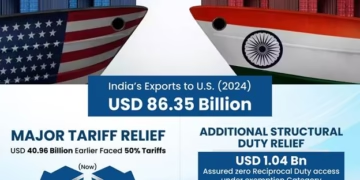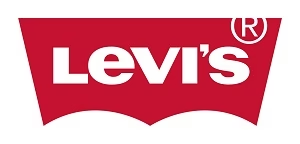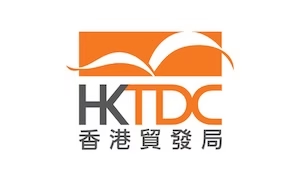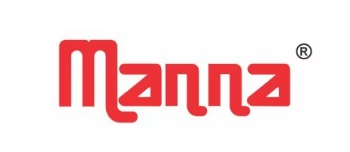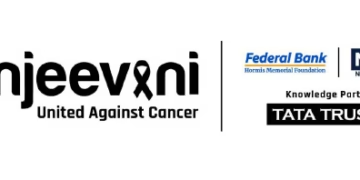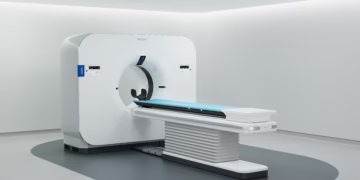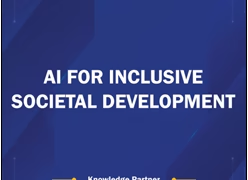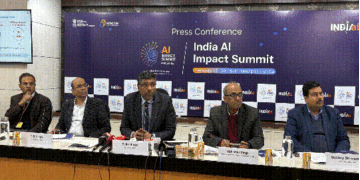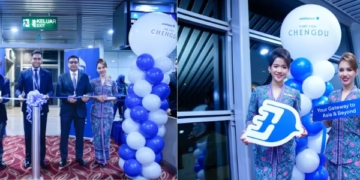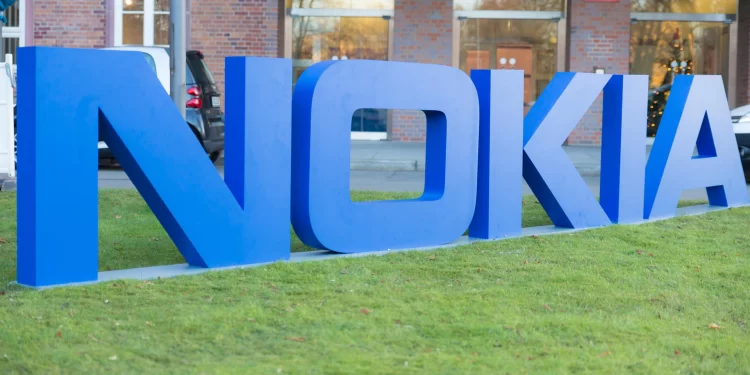- Partners to focus on flexible, reliable and secure LTE and 5G private wireless connectivity services for enterprise customers, including Dow Inc.
- Private Wireless Networking delivers lower latency, higher bandwidth, faster speeds and greater capacity to drive digital transformation and accelerate Industry 4.0
17 February 2022 Espoo, Finland and NEW YORK – Nokia and Kyndryl (NYSE: KD) today announced a global network and edge computing alliance aimed at helping enterprise customers accelerate their digital transformations with industrial-grade reliable and secure LTE and 5G private wireless networking.
The partnership builds on a successful private wireless connectivity project that yielded an innovative solution combining Nokia Digital Automation Cloud (DAC) application platform with Kyndryl’s consulting, design, implementation and managed services. The solution is designed to support the move to Industry 4.0, which is transforming how companies manufacture and distribute their products by interacting with IoT, cloud computing, artificial intelligence (AI) and other advances to their environments and operations.
The collaboration has already resulted in private LTE and 5G real world deployments and several proof-of-concept (PoC) applications for Dow Inc. to support Industry 4.0-enabled worker safety and collaboration, asset tracking, and other capabilities using a blueprint that it plans to expand and deploy across its sites worldwide.
Kyndryl and Nokia share a vision that private wireless networking over both LTE and 5G will enable new levels of operational flexibility and adaptability across a wide range of asset-intensive industries, with manufacturing as a primary market segment.
“As enterprises across every industry are seeking new ways to digitally transform their operations, 5G and edge computing are growing so they can harness the promise of these emerging technologies,” said Paul Savill, global practice leader of Network and Edge computing for Kyndryl. “By collaborating with Nokia, we’re taking another step forward in helping our customers unlock the power of LTE and 5G through a secure, private environment that helps them deliver tailored enterprise-grade edge solutions that drive new value for their bottom lines and next gen customer experiences.”
By collaborating to provide solutions over LTE and 5G standards, Kyndryl and Nokia are addressing the marketplace opportunities that already utilize the strong industrial ecosystem available now with LTE, while paving the way for significant 5G enhancements in future 3GPP releases, with existing Nokia DAC 5G stand alone-ready private wireless solutions.
Chris Johnson, head of the Global Enterprise Business at Nokia, said: “By combining Kyndryl’s world-class services expertise and global reach with Nokia’s mission-critical, industry-leading private wireless and industrial edge computing solutions, we will enable even more organizations to transform their operations, accelerate their digitalization journey and reap the benefits of Industry 4.0.”
Nokia DAC is a digitization service platform featuring high-performance, industrial-grade private wireless connectivity and edge computing, strengthening the company’s global footprint, industry expertise and end-to-end customer solutions – from ideation to implementation and management.
Kyndryl and Nokia also plan to explore and develop new, integrated solutions and services for Edge Cloud, IP networking, Optics, Fixed Access, 4G and 5G Core and Network Operations software technologies that can address growing demand for mission-critical, industrial-grade wireless networking to capitalize on the transformational benefits of digitization and automation.
Asset-intensive industries are adopting smart and autonomous systems fueled by data and machine learning to improve agility, productivity and efficiency. In particular, private wireless connectivity is a key enabler to adding new data sources and analytics layers, for real-time process management, and to facilitate automation, robotics, AI, augmented and virtual reality use cases.
Nokia research finds CSPs have catching up to do to deliver on 5G monetization
- A Nokia-commissioned survey of 100 communication service providers (CSPs) around the world found only 11% have sufficient Business Support Systems (BSS) in place for effective 5G monetization
- About 70% of respondents say they are now considering deploying cloud-based monetization systems
17 February 2022
Espoo, Finland – Nokia today announced new research showing that communication service providers (CSPs) are behind in having the right software solutions in place to help them monetize their 5G networks with new services and network management tools.
To generate returns beyond the traditional data plans of the 3G/4G era, CSPs and enterprises need to modernize their legacy monetization systems, with new service offerings and application development ecosystems. New monetization systems that enable operators to deliver new services, like slicing, faster and at scale are a critical enabler of helping CSPs and enterprises realize faster returns on their network investments.
But the Nokia-commissioned global survey of 100 CSPs around the world found that only 11% of respondents have sufficient Business Support Systems (BSS) in place to meet the needs of 5G-enabled business models. BSS are a critical patchwork of business applications, which includes monetization tools, that help CSPs manage their operations and supply chains through functions, such as billing and charging, and for delivering a solid customer experience.
An overwhelming number of survey respondents, at 98%, indicated they would have to alter their BSS in the coming years in order to put proper, up-to-date monetization tools in place.
The survey also found that nearly 70% of CSPs are now considering deploying cloud-based monetization solutions. In addition, two-thirds of respondents indicated they believe that real-time charging is essential for 5G monetization, in part because of its ability to help CSPs respond quickly to customer demands.
A cloud-native software architecture is key to achieving a 5G-ready monetization system, with many benefits that include limitless scalability, and an ideal platform for AI, analytics, and edge computing capabilities for ultra-low latency use cases.


